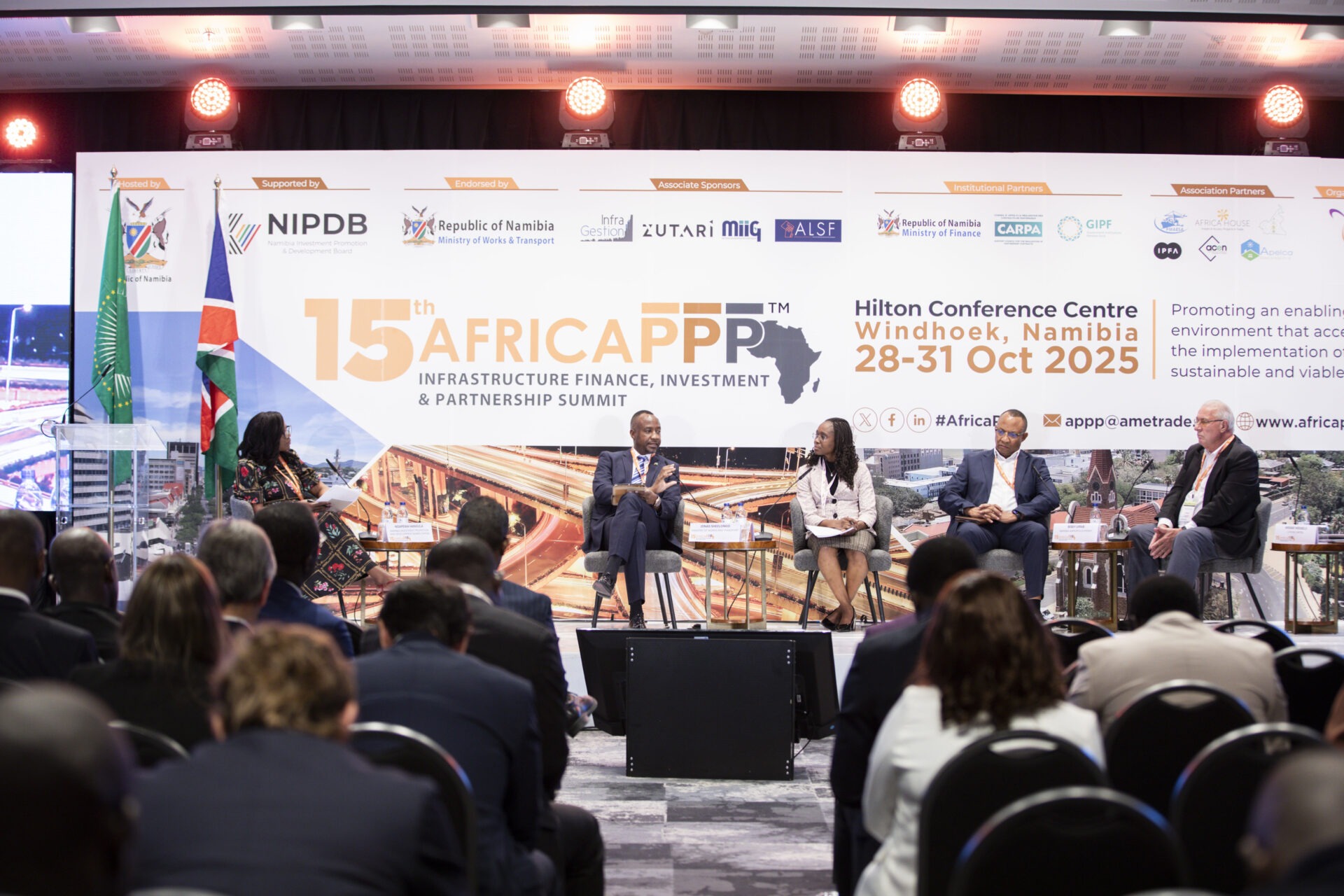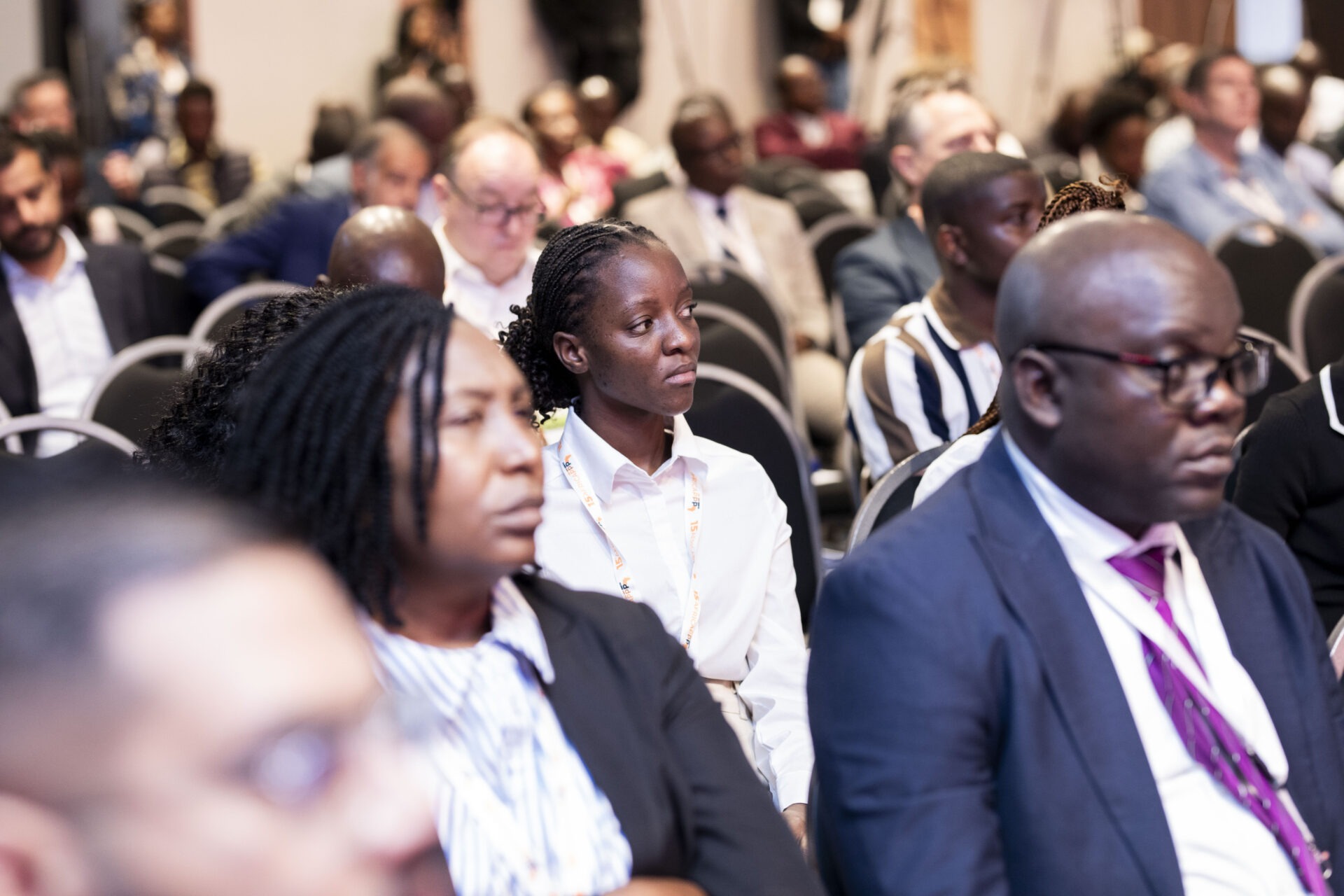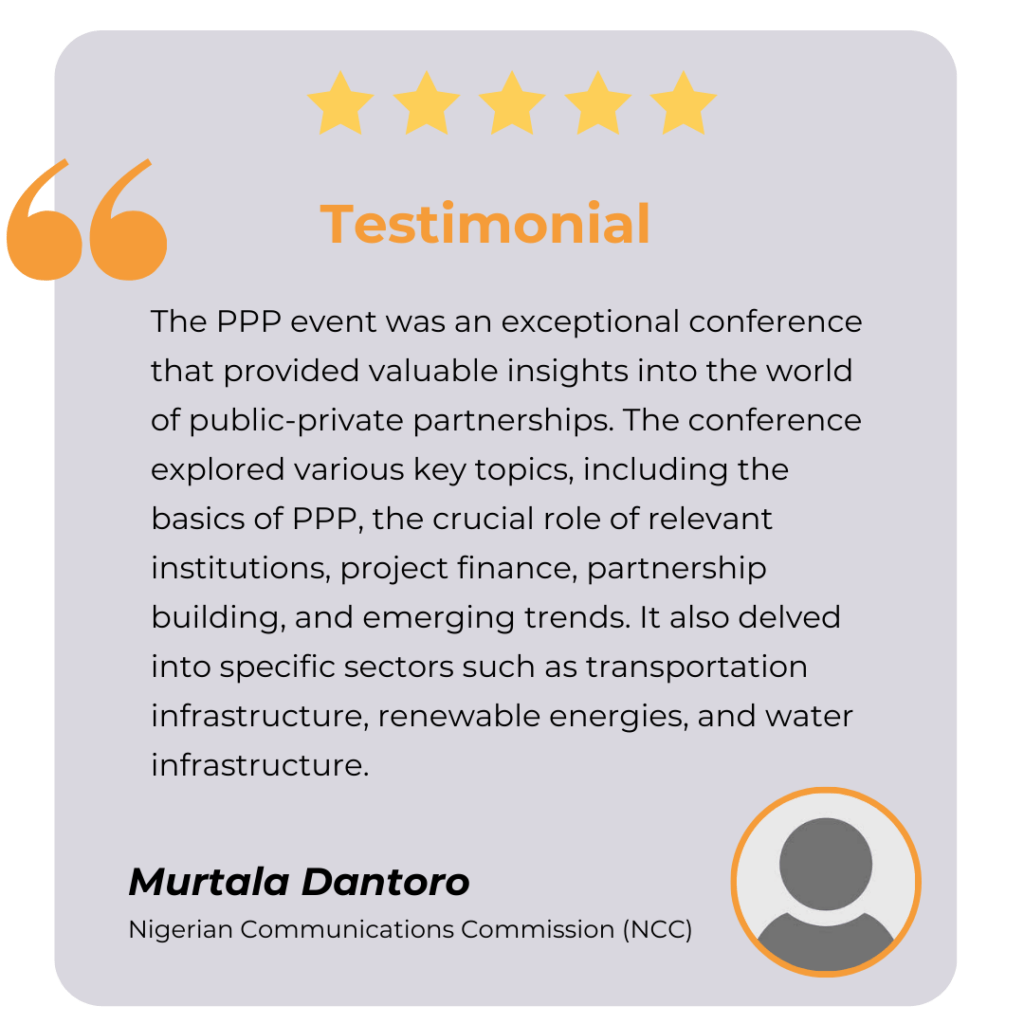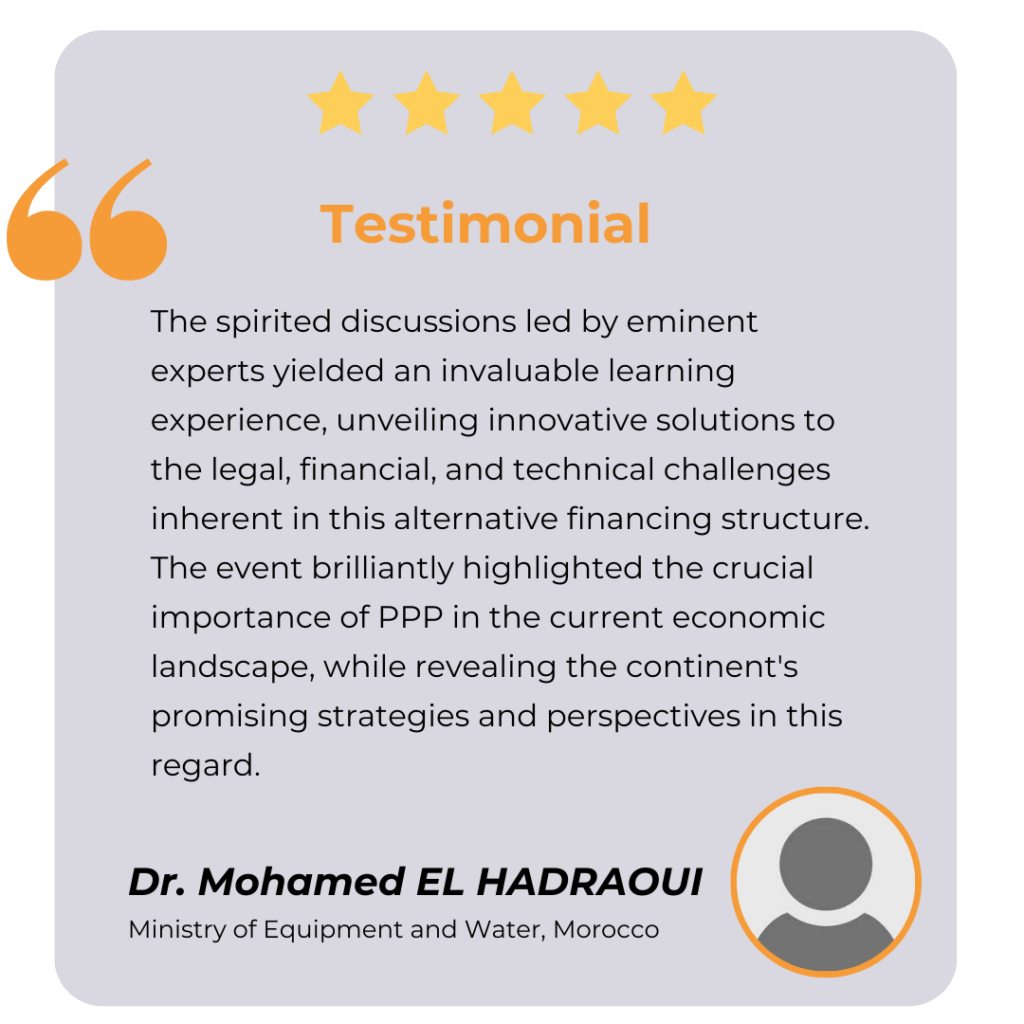Africa PPP 2025 – is the longest running infrastructure finance, investment, and partnership summit, focused on increasing private sector participation in infrastructure development through viable PPPs and innovative financing mechanisms, for a sustainable economic growth. The event was organized with the support of the Namibia Investment Promotion and Development Board and the Ministry of Works and Transport of Namibia, and took place from 28–31 October 2025 at the prestigious Hilton Conference Centre in Windhoek, Namibia.
Africa PPP included two-days Conference, one day masterclass on Project Preparation and one day Touristic and/or Technical Tours.


The summit will featured showcases of bankable project opportunities from across the continent in key infrastructure areas:
These sectors are vital for stimulating sustained economic and social development.
To mobilise capital for investment ready infrastructure projects that support economic growth including vital energy, transport and water projects among others.
To bring attention to sustainable infrastructure development initiatives that serve as positive examples providing key lessons and standards that align with both national and regional aspirations.
To unite industry stakeholders to develop innovative and practical solutions that address the challenges facing infrastructure development projects and PPP implementation
To meet and engage with industry peers and thought leaders to exchange information, best practices, technical expertise and key lessons for the development of infrastructure on the continent.
To hear first-hand from regulators and policymakers on recent regulatory changes designed to enhance the investment climate particularly for infrastructure investments.
To secure credible interest from qualified investors ready to deploy capital for well-structured investment ready PPP and other infrastructure projects.
The 15th Africa PPP Conference – #APPP is not just an event; it’s a catalyst for change in Africa’s development landscape. With resounding success and a commitment to excellence, it’s empowering the continent and reshaping the future of PPPs.
Meet your next project partner and build valuable one-on-one connections with key stakeholders in the infrastructure ecosystem.
Explore potential investment opportunities and gain first hand insights on investment ready projects that will shape Africa’s future.
Get front row knowledge on the infrastructure challenges being faced and position yourself to stand out and offer relevant solutions.
Gain access to the necessary mix of expertise, connections, and resources to move your vital projects forward with momentum and speed.
Take your most important projects/ideas from concept to closing and navigate the evolving environment through smart partnerships.
Bring your projects, products, and services to more relevant stakeholders to effectively gain credibility and industry leadership.
Establish how your peers are performing and use this knowledge to measure and improve your own performance in the sector.
Leverage the platform to demonstrate that you are an industry leading service provider by infusing your expertise in planned and active projects.
Get opportunities to match your financing solutions to some of the continent’s most attractive bankable projects.


